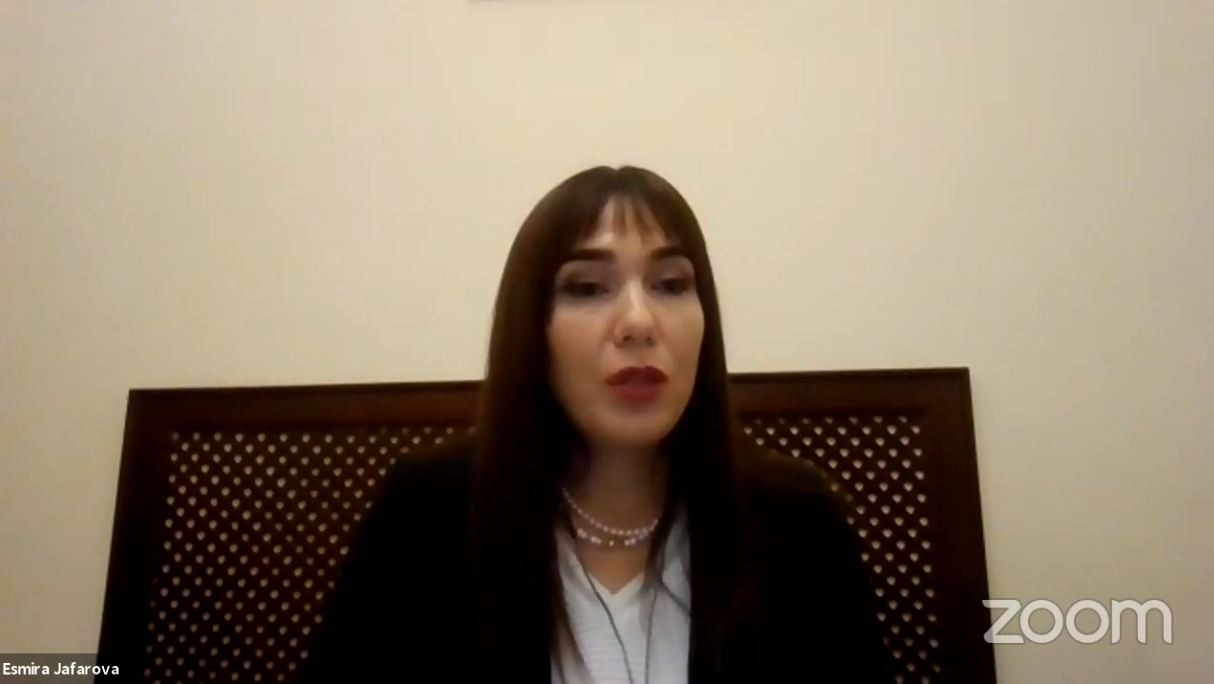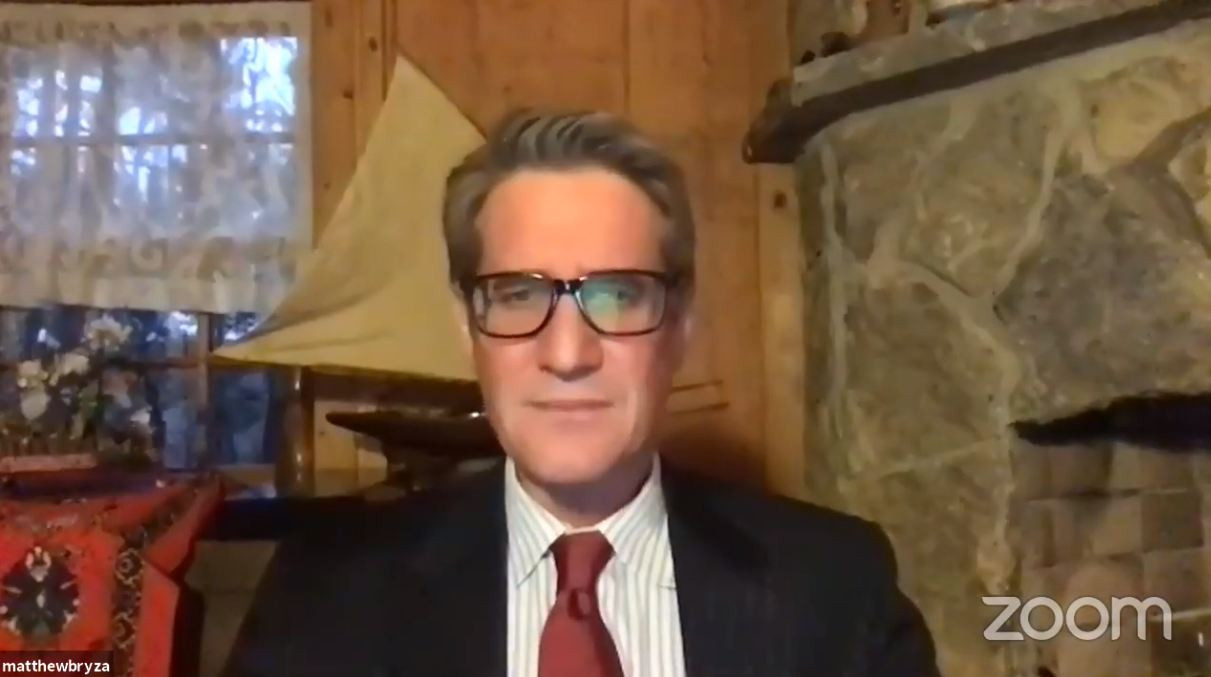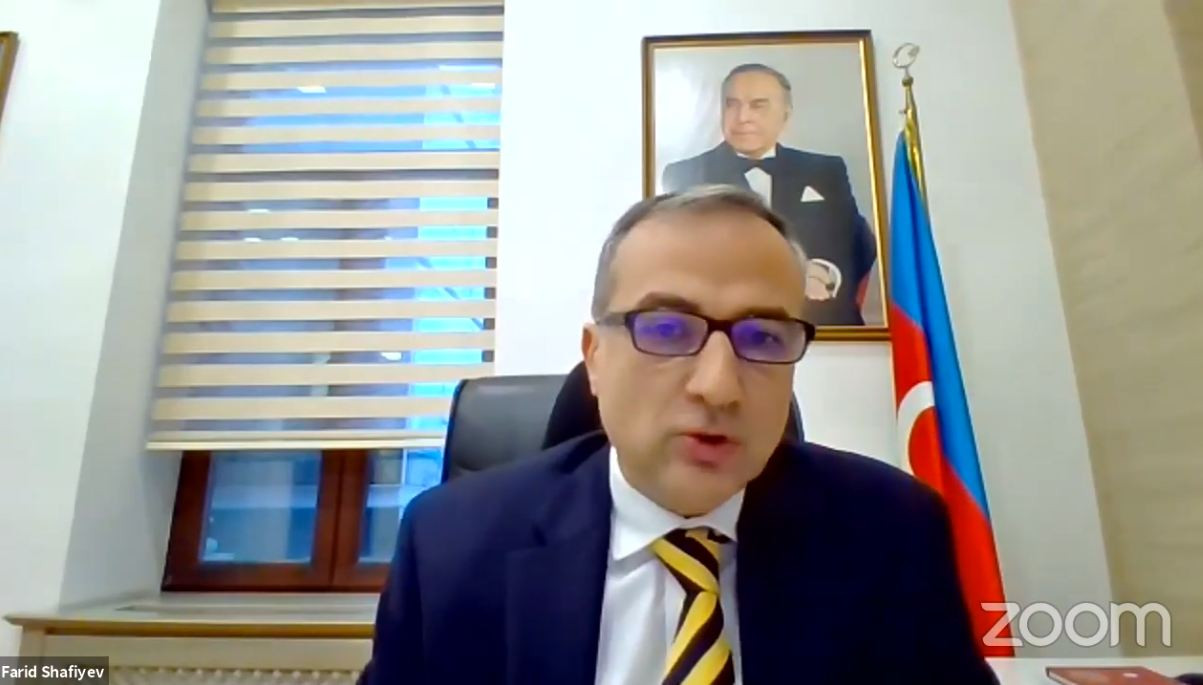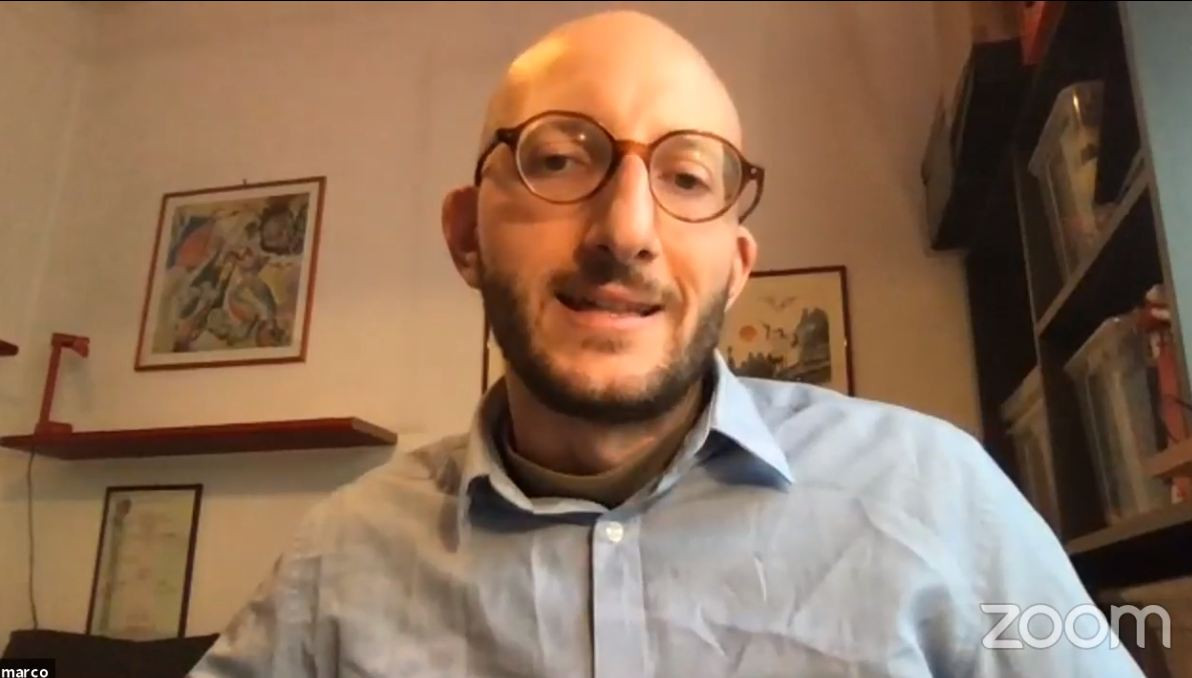The Center of Analysis of International Relations organized an international webinar titled “Azerbaijani natural gas in Europe and the role of Trans Adriatic Pipeline”. Opening the event, Chairman of the AIR Center, Farid Shafiyev, said that the events on the frontline, meaning the Second Karabakh War and the liberation of Azerbaijani lands, have been dominating the news. However, in-between these events, the Trans Adriatic Pipeline was finished and became operational. Farid Shafiyev added that although the sceptical views on the Baku-Tbilisi-Ceyhan project in the 1990s were voiced during the TAP and TANAP projects as well, today, Azerbaijan has successfully completed the project.
During his talk, SOCAR’s deputy vice-president for investments and marketing, Vitaliy Baylarbayov, said that the Southern Gas Corridor project has a great role in the oil and gas industry of Azerbaijan. According to him, this project is one of the longest projects implemented by Azerbaijan in terms of investments, efforts and involvement of different countries: “We can say that the first stage of the energy strategy adopted by Azerbaijan years ago is nearing completion. We are days away from the start-up of commercial operation of the whole Southern Gas Corridor. Before the end of this year, the people in Bulgaria, Greece and Italy will witness the gas coming into their fireplaces in their houses and into power stations.” The SOCAR official said that TAP is a very important transport and transit project for Azerbaijan, partners Georgia and Turkey, as well as the European Union.
Vitaly Beylarbeyov also spoke about the July escalations and the Armenian attack launched on energy and transport projects that connect Azerbaijan to Georgia and provide Azerbaijan’s access to the West. According to him, by doing so, Armenia tried to demonstrate its power and control over the security of the energy corridor. However, the SOCAR official said that Azerbaijan had eliminated this threat by liberating its lands from 27 years of occupation, noting that now the goal is the implementation of development projects in those areas, promoting peace for those living there, “without anything having to do with ethnicity”.
The next speaker, Matthew Bryza, former US ambassador to Azerbaijan, leading expert of the Atlantic Council, referred to the history of energy cooperation and relations between the United States and Azerbaijan saying that initially, his country did not have high hopes for projects in Azerbaijan, which had just emerged from the war in the early 1990s and was facing an economic crisis. However, later the United States became one of the biggest political supporters of these projects: “Despite all the ideas put forward at that time, Azerbaijan decided to develop the national oil and gas industry. Azerbaijan is currently implementing these projects with its economic opportunities and partners. The physical or economic link between Azerbaijan and the EU is one of the factors ensuring not only the long-term development of Azerbaijan but also its physical security and independence”.
Speaking next, board member of the AIR Center, Esmira Jafarova, noted that Azerbaijan’s path of becoming an energy-producing and exporting country was never linear or easy. According to her, Azerbaijan has worked closely with international partners and organizations to make these projects a reality, and now Azerbaijan is an exporter of energy security. She spoke about the policy of 3Ds (diversification, decarbonization, demand satisfaction) and touched on the project’s contribution to Europe’s energy security and sustainable development, as well as the idea of diversification of energy sources and meeting the needs of the region. Esmira Jafarova also said that despite the increase in renewable energy sources and the “green energy” strategy in Europe until 2020, the demand for natural gas has been recognized by the EU and international experts.
The final speaker, Marco Guili, an associate policy analyst at European Policy Center, stressed the importance of the project in terms of material, normative and national interests in Europe. He said the TAP project has a broad target audience in Europe, making part of the continent more competitive in the energy sector.
Later, the webinar continued with a question and answer session.








